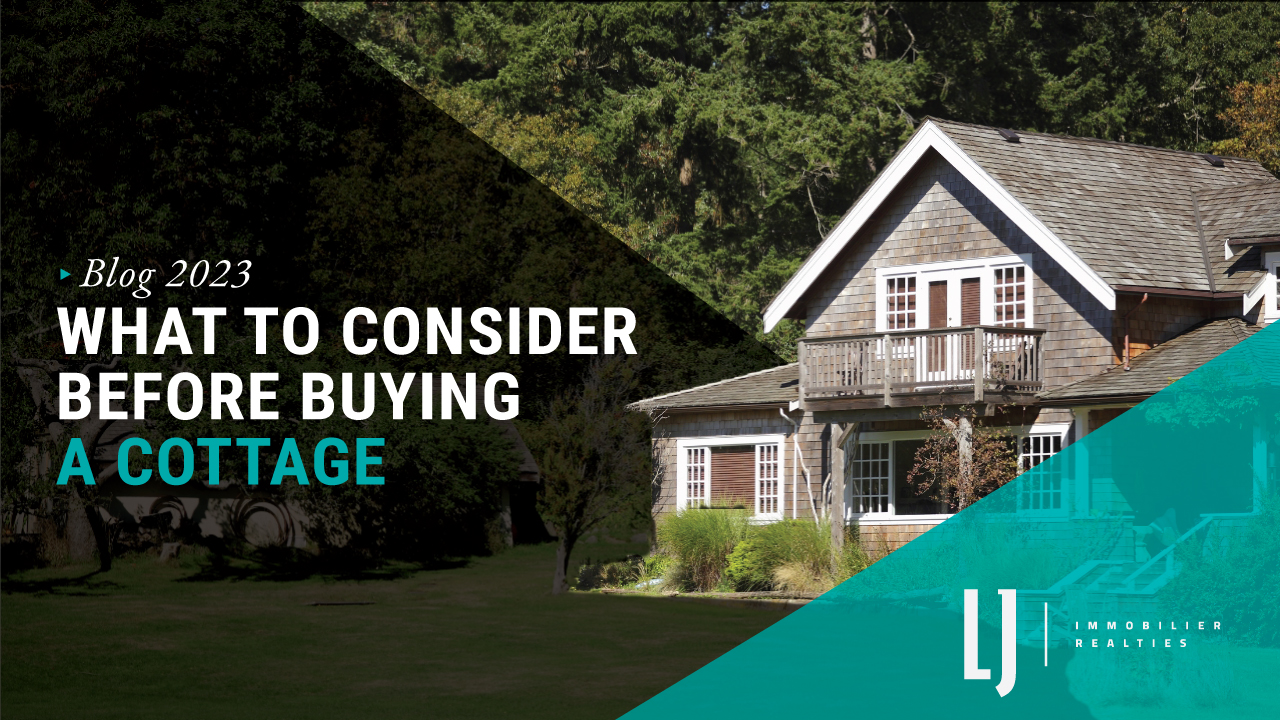
Over the last couple of years, we’ve seen a huge surge in the market for cottages. Our team has spent lots of time up north and in the eastern townships with different clients, and we’ve realized there are lots of things most people don’t realize about their first cottage purchase.
First of all, it’s important to consider the purpose behind the purchase. Are you looking to make it a permanent residence? Do you only want it as a weekend and vacation home? Or are you looking to turn it into an investment property that you can rent out?
Based on the answer to that question, we’ll already have a better idea of how to approach the market.
If you’re looking to make it your permanent residence, you obviously want it to be a four-season cottage. For example, all the accesses to the property need to be snow removed, have clearance, and have everything you need in order to make it accessible during winter.
The second major factor is the water system. Are you connected to the municipality? Is it a well? What kind of water source are we working with?
Next, the sewage. Is it connected to the municipality as well? Do you have a septic tank? When was the last time it was cleaned out? What year was it installed?
Finally, how many people is the property supposed to accommodate?
All of these considerations are exclusive to cottage shopping – you’d never need to think about them if you were buying a city property!
The next important thing is insurance. Insurance really depends on whether you’re looking to make your country home a permanent residence, part-time residence, or investment property.
In order to insure a short-term rental cottage, it’s super important that you have the appropriate designation. You have to go get your CITQ permit, and with that, you’ll be able to get proper insurance.
People often overlook this step because they want in on the Airbnb craze, but if you’re not properly insured, you could have very large problems coming your way.
After you cover those key items, the next question is: how was the home built? Is it on concrete blocks? Does it have a poured concrete foundation? Is it a log home?
Finally, we need to get into the nitty-gritty – all of the standard stuff of plumbing, roofing, windows, and doors, which we would look at with any other property.
Cottage or not, buying a property is no small task. Reach out to our team if you have any questions about the real estate market in the city, country, or both!





